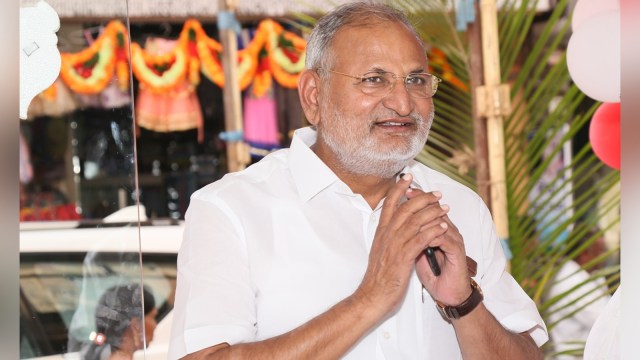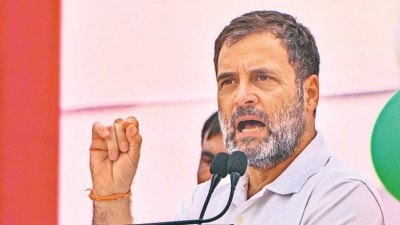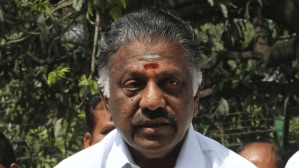Manikrao Kokate convicted in fraud case: What it means, and what legal recourse is available to him
Manikrao Kokate, an MLA from Sinnar constituency in Nashik district, was convicted in connection with illegal acquisition of two flats under the Chief Minister’s discretionary quota.
 Kokate, who is convicted by a magistrate court, can approach a sessions court or high court seeking stay on the conviction by the magistrate court. (Credit: Facebook/Manikrao Kokate)
Kokate, who is convicted by a magistrate court, can approach a sessions court or high court seeking stay on the conviction by the magistrate court. (Credit: Facebook/Manikrao Kokate)State agriculture minister Manikrao Kokate is likely to face disqualification as member of the Maharashtra Assembly after a Nashik court on Thursday convicted and sentenced him to two years imprisonment for document tampering and fraud case. Kokate, an MLA from Sinnar constituency in Nashik district, was convicted in connection with illegal acquisition of two flats under the Chief Minister’s discretionary quota. Rupali C Narwadiya, Additional Chief Judicial Magistrate, Nashik, convicted Kokate and his brother for offences punishable under Sections 420 (cheating), 465 (forgery), 471 (using as genuine a forged document) and 474 (possession of forged documents) and 34 (acts done by several persons with common intention) of the Indian Penal Code.
What is the law on disqualification of MLAs?
The Representation of People Act, 1951, provides a mandate related to elections to the Parliament and state legislature and qualifications and disqualifications for membership of such houses. As per Section 8 (3) of the said Act, “a person convicted of any offence and sentenced to imprisonment for not less than two years shall be disqualified from the date of such conviction and shall continue to be disqualified for a further period of six years since his release.” The member of the legislature is disqualified from the date of conviction and shall continue to be disqualified for a further period of six years after his release. Earlier, as per section 8 (4) of the 1951 law, the disqualification would take effect only after three months have elapsed from the date of conviction so that the legislator could approach the higher court with an appeal against the conviction. However, the Supreme Court, in its 2013 judgment in the Lily Thomas v Union of India case, struck down the said provision as ‘unconstitutional.’ Moreover, Article 191 (1) (e) of the Constitution provides that a person shall be disqualified for being chosen as, and for being, a member of the Legislative Assembly or Legislative Council of a State if he/she is so disqualified by or under any law made by Parliament.
What is the legal recourse available to Kokate?
The disqualification can be reversed if a higher court grants a stay on the conviction or decides the appeal in favour of Kokate. To reverse disqualification, the higher court has to stay the conviction and mere suspension of sentence under Section 389 of the Code of Criminal Procedure (CrPC) would not suffice. In its 2018 verdict of Lok Prahari vs Union of India, the Supreme Court had clarified that once the conviction is stayed by a higher court during the pendency of an appeal, the disqualification operating as a consequence of the conviction cannot take or remain in effect. Kokate, who is convicted by a magistrate court, can approach a sessions court or high court seeking stay on the conviction by the magistrate court.
What the Speaker of the Legislative Assembly has to say?
Maharashtra Legislative Assembly Speaker Rahul Narwekar told The Indian Express that he will take appropriate action of suspension once he receives a copy of the court order and the communication from the Election Commission. “A communication has to come from the Election Commission regarding the conviction, following which an action can be taken. However, if any member manages to get a stay on the conviction order from a higher court, the action can be stayed,” Narwekar said. The Vidhan Sabha secretariat can thereafter issue formal notification to the MLA to inform that consequent upon conviction he stands disqualified from being a member of the Maharashtra Legislative Assembly. When asked if convicted members can seek time, Narwekar said,”There is no such provision of giving time until and unless there is an order from the higher court.” With the state assembly’s budget session slated to be held in March, there is an uncertainty whether Kokate will be allowed to attend it or not.












